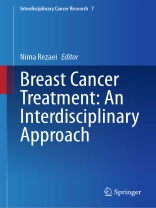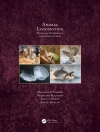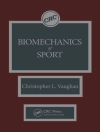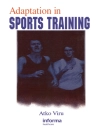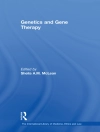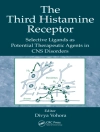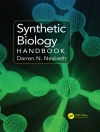There are different types of treatment for breast cancer, including surgery, chemotherapy, radiotherapy, hormone therapy, immunotherapy, and targeted therapy. Deciding on the types of treatment depends on several factors, such as the stage and grade of cancer, biomarkers, and general health of patients.
The seventh volume of the “Interdisciplinary Cancer Research” series, entitled “Breast Cancer Treatment: An Interdisciplinary Approach” publishes comprehensive reviews on different treatment opportunities on breast cancer. An update on treatment of triple-negative breast cancer and ductal carcinoma in situ is provided. Ablative breast cancer surgery, radiotherapy, and percutaneous breast cancer treatment are explained. Promising hormone immunotherapy combination as well as targeted therapies for breast cancer is also discussed. This interdisciplinary series is of special value to researchers working on oncology. This is the main concept of Cancer Immunology Project (CIP), which is a part of Universal Scientific Education and Research Network (USERN). This interdisciplinary book will be of special value to researchers and oncologists who wish to extend their knowledge on breast cancer treatment.
Table des matières
Signal Transducer and Activator of Transcription as a Potential Therapeutic Target in Breast Cancer.- Triple-Negative Breast Cancer Therapy: Recent Advances, Challenges, and Future Perspective.- Advances in Local Ablative Techniques for Breast Cancer.- Radiotherapy in Breast Cancer.- Percutaneous Breast Cancer Treatment.- Revolutionizing Breast Cancer Care: Cutting-Edge Breakthroughs and Future Frontiers in Precision Medicine.- Updates on the Management of Ductal Carcinoma In Situ of the Breasts.- Nanostructured Lipid Carrier as a Strategy for the Treatment of Breast Cancer.- Managing Breast Cancer Using the Cell-Surface GRP78.- A Hormone Immunotherapy (HIT) Combination in Advanced Breast Cancer.- Discovering New Targets in Triple-Negative Breast Cancer (TNBC): The Androgen Receptor and the Estrogen Receptor b.- Growth Factor Receptor Implications in Breast Cancer: Prospects for Their Molecular Transactivation in the Future and Obstacles for Target Therapy.- Addressing ESR1 Mutation: A Key Factor in Hormone Therapy Resistance in Breast Cancer.- Tumor Microenvironment Modulation and Its Impact on Immunotherapy in Triple-Negative Breast Cancer.- Claudin 1: An Emerging Target for Triple-Negative Breast Cancer.- Histaminergic System as a Promising Target for Breast Cancer Treatment.- Nutrient Transporters: New Molecular Targets for Triple Negative Breast Cancer in Type 2 Diabetics.- Holistic Nursing Approach: A Case Study on Integrating Traditional Chinese Medicine into Nursing Care for a Patient with Upper Limb Lymphedema and Coexisting Pressure Injury Post-breast Cancer Surgery.
A propos de l’auteur
Professor Nima Rezaei gained his medical degree (MD) from Tehran University of Medical Sciences and subsequently obtained an MSc in Molecular and Genetic Medicine and a Ph D in Clinical Immunology and Human Genetics from the University of Sheffield, UK. He also spent a short-term fellowship of Pediatric Clinical Immunology and Bone Marrow Transplantation in the Newcastle General Hospital. Professor Rezaei is now the Full Professor of Immunology and Vice Dean of Research and Technologies, School of Medicine, Tehran University of Medical Sciences, and the co-founder and Head of the Research Center for Immunodeficiencies. He is also the Founder of Universal Scientific Education and Research Network (USERN). Prof. Rezaei has already been the Director of more than two hundred research projects and has designed and participated in several international collaborative projects. Prof. Rezaei is the editor, editorial assistant, or editorial board member of more than fifty international journals. He has edited more than one hundred international books, has presented more than a thousand lectures/posters in congresses/meetings, and has published more than 1, 500 scientific papers in the international journals.
